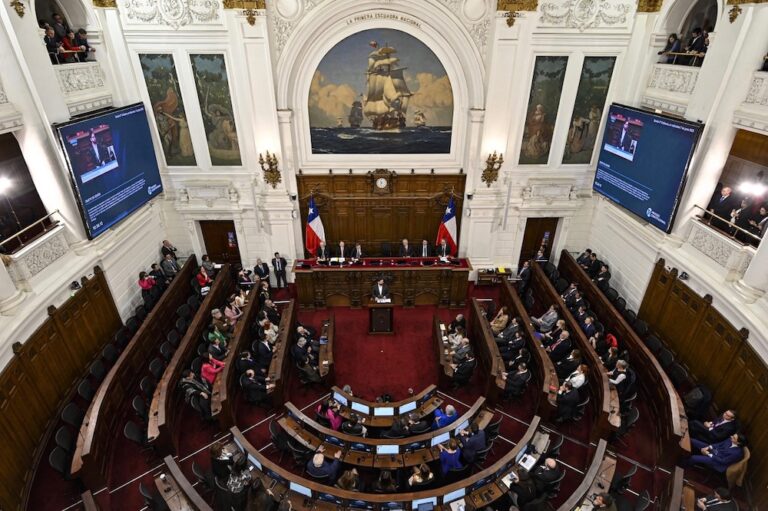(AMARC/IFEX) – The following is an abridged version of a 2 November 2007 AMARC press release: AMARC welcomes proposed community radio bill but calls for some modifications AMARC’s Latin American and Caribbean office (Asociación Mundial de Radios Comunitarias para América Latina y el Caribe, AMARC-ALC) welcomes the Chilean government’s recent attempt to finally recognise community […]
(AMARC/IFEX) – The following is an abridged version of a 2 November 2007 AMARC press release:
AMARC welcomes proposed community radio bill but calls for some modifications
AMARC’s Latin American and Caribbean office (Asociación Mundial de Radios Comunitarias para América Latina y el Caribe, AMARC-ALC) welcomes the Chilean government’s recent attempt to finally recognise community radio stations. A bill that would grant legal status to these stations was brought before Congress in October 2007.
The community radio sector has played a key role in promoting local development and in the spread of democratic values in the country. The bill, once passed, will result in changes to the current Telecommunications Law and fill an important void in the legislation as regards radio broadcasting. As it states, “it is important to grant citizens the right to express themselves freely via the various media outlets and channels of communication that are available to them”.
Some of the proposed changes would grant community radio stations the right to earn funds from advertising, reserve certain radio frequencies for these stations, and extend the time operating licences are valid from 3 to 15 years.
At the same time, AMARC-ALC notes that the bill does not guarantee equal and equitable access to radio frequencies for all Chilean citizens and community organisations.
Limitations on the territorial range and power of the radio broadcasting signal, and the allowable height of the broadcasting towers, still exist in the bill, as do restrictions on community radio stations’ access to television or AM radio frequencies, which have a higher impact; currently only FM radio stations are allowed to do.
While improvements have been proposed, these would only slightly improve Chile’s legislative framework for guaranteeing the functioning of community radio stations; Chile’s was the worst in Latin America, and with these modifications, it is now as good as Brazil’s, which was the second worst.
The current restrictions would be analogous to limiting the number of pages in a newspaper or its area of distribution solely because it is run by a non-profit organisation.
Community broadcasting does not necessarily imply a geographically-restricted kind coverage, therefore there should be no prior or arbitrary restrictions on the signal reach or strength, or on the number of community radio stations in a particular town, region or the country as a whole, other than reasonable restrictions necessary to prevent concentration of ownership of the media.
The bill recognises a number of labour, indigenous and women’s organisations as operators of community radio stations, and that these kinds of organisations are also potential operators of new stations. However, the aforementioned obstacles must be removed to ensure that such groups can run effective community radio stations and thereby reach their audiences.
While AMARC-ALC welcomes the recent government initiative, it calls for modifications to the proposed bill and has offered to assist in the process by sharing its expertise in the matter.


